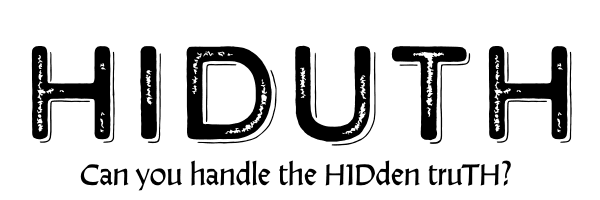There’s something behind that: Truth about Charlie Hebdo – For a few months now, the colleagues at Kopp Verlag have been fulfilling a particularly large number of orders: the book “Gekaufte Journalisten,” or “Journalists for Sale” by the former “Frankfurt Allgemeine Zeitung” editor Udo Ulfkotte has been on the lists of top-10 bestsellers for months. Jochen Kopp says he has sold more than 140,000 copies.
Yet castigating the media is not Mr. Kopp’s main concern. Among the offerings of the publisher is also the entire oeuvre of Erich von Däniken, who is convinced of the existence of extra-terrestrials and offers dubious health advice (“Fight cancer with vitamin B17”). Gerhard Wisnewski, a former journalist for “Bild,” who these days writes for the rightist-esoteric magazine “Compact,” published a book at the end of April called “The Truth about the Attack on Charlie Hebdo — Founding Act of a Totalitarian Europe.” Jochen Kopp calls titles such as this “pointed.” He says that many publishers simply disregard attractive topics and chortles heartily: “But fine — that’s no problem for us.”
Mr. Kopp recounts that a reader recently wrote that the books from Kopp Verlag are like “mental itching powder.” He likes the term. That is how he sees his mission: to irritate the big fish, to provoke them even if using unfair means. “Of course one can produce books that are quite balanced, no question,” says Mr. Kopp. “But it’s also interesting to publish a pointed opinion, and then another publisher brings out the counter-position. That would actually have to give rise to a discussion. But this discussion is lacking in Germany.”
Mr. Kopp is neither a bully nor an idiot; but he is certainly not as naïve as he appears to be. Because it is not simply other opinions that he publishes. He aims deliberately, as has been pointed out by the political scientist Paul Nolte, “at an aggressive, anti-elitist, anti-institutional attitude.” And his concern is not with plurality, not with other opinions. The supposedly manipulated consensus has to be exposed as a “lie,” “deception,” “conspiracy”; there is “falsification” and “duping.” Mr. Nolte states that “the great coalition of politics is opposed by a great coalition of arrogance” that no longer wants to take political debate seriously and instead conjures up diffuse, radical alternatives. The suggestion is that only through these radical alternatives can the lost autonomy of politics be restored. At the same time, there is the promise of freedom from ambiguity, something which is painfully lacking for many people because of the overwhelming flood of information. Already in 2005, the American TV satirist Steven Colbert came up with a term that describes this phenomenon so well that since then it has come to be used to designate it: “truthiness,” the quality of an idea that “feels” right even though it lacks all scientific proof.
America is the land of the free, but it is also the land of the apocalypse. Here distrust of authority is a basic institutional orientation. Americans have organized their country so that the individual states have power, and not the elite in Washington. The opinions of individuals are traditionally given just as much weight as the majority opinion. But the rejection of scientific results has another basis. It is the fear of losing control — not only over the world, but also over one’s own life.
Thus science withdraws more and more from public life in America. In television, in the newspapers, in the schools. For every five hours of television news reports, less than one minute is devoted to scientific issues. The number of newspapers with a scientific section has declined by 40 percent in the last 20 years.
That has left room for many truths: 87 percent of scientists say that climate change is caused by humans but only 50 percent of Americans believe that. Some 98 percent of scientists say that humans arose through evolution; only 65 percent of Americans are of that opinion.
There is a long tradition of controversy about evolution in the USA. During the 1920s, three states forbade the teaching of evolution in schools. And today in Texas, Minnesota, Missouri, South Carolina and Alabama, there is still a requirement that important aspects of evolution be examined critically in schools.
In Petersburg, Kentucky, the group of fundamentalist Christians called Answer in Genesis built the Creation Museum. On terrain the size of a holiday park, an attempt is made to present the Bible as a construction plan for the world — and to disprove Darwin. Included in the exhibition are the Garden of Eden and a dinosaur park. At the moment, Answer in Genesis is also building a replica of Noah’s ark.
If there are no longer any commonly shared truths, if everyone withdraws into his own felt truth, then one of the foundations inwardly holding society together is in danger: trust. In 1960, two out of three Americans said that they generally trusted their fellow human beings. In 2006, it was only one in three. That has a great impact on how a society develops.
What is so seductive about every conspiracy theory is that it cannot be disproved. “Conspiracy theorists categorically doubt official reporting, but they never question themselves and the results of their own research,” says Bernhard Pörksen, a media scientist from Tübingen. “Every objection is pigeonholed and defused as quick as lightning.” If no conspiracy can be proven, then this is only proof of how clever the conspiracy has been organized.
The political scientist Paul Nolte sees in the vexation at too much consensus, in the spreading of a “diffuse parallel universe regarding conspiracy theories,” on the one hand a symptom of crisis in democracy. It is not far from that orientation to the pseudo-heroic taboo violations of Pegida, Le Pen, Wilder and also the far-left populists. On the other hand, Mr. Nolte discerns a new constellation of democracy which, as shown by examples in the USA, is not limited to Germany: if in the past social classes, ideologies and parties confronted each other horizontally, now the political class is faced with a distrustful public. If people used to be proud of “their” representatives in Bonn, Paris or Washington, the suspicion today is that the elected officials are primarily interested in their own welfare. Mr. Nolte sees little reason to hope for a rapid change or improvement.
In fact, this viewpoint seems to be confirmed by more and more revelations about a chancellery that willingly lets itself be eavesdropped upon, a government that constantly formulates new inviolable limits in the Greek crisis and then blithely crosses them. And a Grand Coalition, the institutionalized cohesion of the powerful against the weak, the big against the little, leaves little outlet for this dissatisfaction.
What is dangerous in all this is not only the hate that divides society. Danger arises when a conspiracy theory becomes a justification for engaging in violence — when the conspiracy theorist believes that he must use other means to finally open the eyes of everyone else. And when a conspiracy theorist believes that he is not only being persecuted by the “power structure,” but will also be eliminated at some point, will he not then attempt to preempt his opponents — and eliminate them first? “In the parallel universe of their forums and hate-filled books, the prophets of the great media conspiracy already now are constructing a wartime situation that leaves no time for thinking in alternatives,” says the media scientist Mr. Pörksen. That is ultimately the manner of thinking of suicide bombers.




